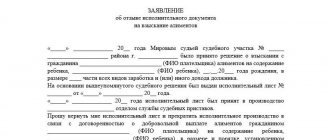General
Article 116 of the Civil Code deals with how everything is divided after the death of the debtor. Citizens who are alive at the time the case was opened or were conceived before the death of a person have the right to receive a property estate. In the latter case, their interests are represented by their mother/father. The disposal of property occurs at the discretion of the citizen. If he wants, he has the right to create a testamentary act.
When a citizen dies and there is no will left, this gives reason to believe that the property will be divided among legal successors on the basis of laws. In this case, the determination of the circle of persons to whom the rights to property are transferred takes into account the established priority.
The Civil Law reflects eight lines of successors. The next order is called upon if there are no representatives of the previous one.
The citizen to whom the inheritance is transferred must understand that the debts of the deceased will also be transferred along with the property. You will have to pay everything, but the law sets a limit on the value of the inheritance. The legislative level also reflects the responsibility of parents to help their children.
Will alimony obligations pass to legal successors?
The legislator stipulates that a parent must fulfill the responsibilities of maintaining a child until he turns 18 years old. Persons accepting an inheritance are not required to pay debts accumulated for alimony. Article 112 of the Civil Code reflects that the transfer of rights associated with the personality of the deceased does not pass to the heirs.
A list of debts that are not transferred after death has been developed:
- debt for compensation for damage to health;
- debts on alimony payments;
- other duties.
Family law indicates that the obligation to pay alimony terminates upon the death of the payer. This means that only the parent, but not his legal successors, is obligated to support the child until he reaches the age of majority. The situation regarding the accumulated debt to pay alimony is resolved in a different way. This applies to debt generated during the citizen’s lifetime.
Are alimony debts inherited after the death of the debtor?
Not a single person in this world knows exactly when he will depart to another world. In this regard, it often happens that the alimony holder dies and is left with an outstanding debt. The question immediately becomes relevant: who will fulfill the obligation to pay the alimony debt after the death of the debtor and will this obligation be fulfilled in principle?
Payment of alimony and debt obligations
Art. 120 of the Family Code of the Russian Federation, as one of the grounds for terminating the obligation to pay alimony payments, establishes the following: the death of the payer or the claimant.
This norm is often interpreted incorrectly. The following circumstances must be distinguished:
* obligation to regularly pay alimony;
* obligation to pay alimony DEBT.
So, with the death of the alimony payer, his obligation to make regular alimony payments ends. This is natural: the person is not among the living, and accordingly, he cannot receive wages and make payments.
As for the resulting debt, it appeared even before the payer of the funds died. Consequently, this debt obligation does not terminate in the event of the death of the debtor.
Who will pay off the debt?
After the death of the debtor, as stated above, no one will pay monthly alimony for the child. But someone, under certain conditions, will have to pay the debt on them. Who will be appointed as the new debtor?
Let's turn to Art. 1112 of the Civil Code of the Russian Federation. It states that in the process of inheritance the following passes from the testator to the heir:
* property;
* property rights and obligations.
That is, alimony debts are also included in the inheritance.
As practice shows, heirs often try to avoid paying the debt, trying in various ways to prove that this alimony debt is very closely connected with the personality of the deceased, and, therefore, the debt should not be inherited. In this situation, in 99.9% of cases, the court comes to the conclusion that there is a close connection only between the deceased debtor and his obligation to regularly pay alimony. As for the resulting debt, there is no close connection and cannot be.
In general, if the father/mother of a child has incurred a debt for alimony during his lifetime, then this debt will necessarily be included in the inheritance. There is definitely no point in challenging it. It will only waste precious time and money.
A small summary: if the parent who was assigned the obligation to pay child support passes away, his child is no longer entitled to receive monthly money from him. If there is a debt, the debt must be paid by the heirs of the deceased.
Examples from judicial practice
1. A deceased alimony debtor has 3 heirs: father, mother and son, to whom he paid alimony. The testator was divorced from his wife at the time of death. There are also arrears in payments. All heirs decided to enter into inheritance. In such a situation, each of them will have to undertake the obligation to pay 1/3 of the debt. But the child who has entered into the inheritance is both the recipient of the funds and, now, their payer. Should he pay himself? Of course, this doesn't make any sense. The law also speaks about this, establishing: if the claimant and the debtor are the same person, then the obligation is terminated. Thus, the child will receive 1/3 of the debt from his grandparents - the father's parents. The debt will be considered repaid.
2. The testator has one heir. He is also the person to satisfy whose needs the money was paid. Here, as in the first case, there is no requirement to fulfill the obligation to pay the debt included in the inheritance estate.
In all other cases, alimony under the opened inheritance goes to the heirs, provided that they were accrued but not paid during the life of the testator. That is, there was a debt. Let us repeat, the heirs have no obligation to pay regular payments.
Death of the collector
Let’s digress a little from the situation when the payer of the funds dies in order to examine pressing issues related to the death of the debtor.
Several problems and pressing issues can be identified in this topic:
* who exactly is the claimant;
* what to do if the legal representative of a minor has died?
Let's try to answer these questions.
Who is the claimant? In all enforcement documents, the claimant is a representative of a minor child. It is to the child that the parent must pay child support and he is the recipient of the funds. But due to his minor age, he does not have the right to receive not only funds in his hands, but also to independently dispose of them. Example: the mother of a minor child died. Taking into account this fact, payments for alimony obligations in no case stop.
However, some actions must be taken in such a situation. There may be several options:
* the child begins to live with his father;
* he is assigned a new guardian.
If the child begins to live with the father, there is no need to pay alimony, since the father assumes the responsibility for maintaining the minor child, with the only difference being the absence of various types of agreements on the payment of alimony and writs of execution.
Let's consider another situation. A guardian (for example, a grandparent) will be assigned to the son or daughter. Next, the guardian files a claim with the court to replace the claimant. All. The claim will be satisfied without any questions asked. Next, the decision will be executed: funds will be paid to the grandparents for the maintenance of the minor child.
Repayment of debt by an heir
The debt for alimony payments that arose during the life of the grantor must be repaid by the heirs. But there is one thing. The recipient of funds (alimony) cannot be both the recipient of alimony and the debtor for alimony.
In the first case there are several features:
* debt repayment is carried out in proportion to the received property;
* the debt is paid, as it were, from the inheritance mass.
Thus, if there is not one heir, but several, the entire amount of debt is divided into shares proportional to the property received. And one more important fact - when paying off debt, the value of property received by inheritance is also taken into account.
IMPORTANT! The heir cannot fulfill the obligation to pay the resulting alimony debt at his own expense, i.e. using own funds and own property.
IMPORTANT! After the death of the debtor-testator (deceased alimony payer), the heir must provide information about the death to the bailiff service. If this is not done, the amount of debt will increase, which is naturally unacceptable, since the debt should not be accrued in the name of the deceased.
How to avoid having to fulfill an obligation?
The method is very simple, and it is perhaps the only legal one: you must not enter into an inheritance. Of course, when making a decision you need to take into account all the points:
* composition of property;
* amount of debt;
* the number of heirs and the amount of shares due to them.
If accepting an inheritance does not bring an increase in property, then you should go to a notary and write a waiver. Accordingly, the debt cannot be recovered from the abandoned heir.
Transfer of alimony debt
There are no questions regarding the transfer of debt on alimony payments. This is due to the fact that the state establishes protection for citizens, including minors. If during his lifetime a person has accumulated debts to pay alimony, then after his death the debt is redistributed among legal successors. The heirs are liable to the child in shares proportional to the property received.
The debt is divided only among those citizens who are included in the queue called for inheritance.
In what cases do heirs not have to pay alimony debt?
The only legal way to avoid paying debt obligations is to completely refuse to receive the inheritance. Since the legislation does not provide for selective inheritance, the successor will have to give up, among other things, expensive property.
Important! Refusal of the inheritance estate is relevant only if the amount of debt exceeds or equals the actual value of the property. Otherwise, the successor has the right to transfer part of the inheritance to pay off the debt, and dispose of the remaining property at his own discretion.
As a result: are alimony debts inherited?
According to the current norms of the Civil Code of the Russian Federation, the inheritance mass is a set of rights and obligations. That is, by accepting an inheritance, legal successors receive not only property, but also the debts of the deceased. Thus, according to Article 1112 of the Civil Code of the Russian Federation, arrears of alimony payments are also included in the inherited estate and are subject to repayment by the legal successors of the deceased.
Sign up for a consultation
Debt collection
Article 120 of the Family Code reflects cases when the payment of alimony payments ends:
- there is no need for it;
- the child is of working age;
- the recipient has died;
- the applicant is adopted.
Based on what is reflected in Article 112 of the Civil Code, the successor does not have to pay alimony to the children of the deceased, but is obliged to pay debts. The law does not establish a prohibition regarding the collection of additional payments from the estate for the fact that a person looks after the children of the deceased.
Article 112 of the Civil Code specifies the funds used to pay off the debt.
These include:
- property belonging to the deceased;
- funds held in accounts opened in the name of the deceased.
When considering the issue in court, the feasibility of alimony payments is determined based on what the deceased owns. This happens at the request of a citizen receiving child benefits. If there are several children, then the distribution of property to pay off debts is realized in equal parts. The law states that a decision made by a court is subject to mandatory execution. If the provisions reflected in the order are not fulfilled by the person voluntarily, then enforcement proceedings will need to be opened. In this case, collection will be forced.
What should the recipient of alimony do after the death of the payer?
At the initial stage, you will need to inform the bailiff that the citizen has died. This must be reported to the bailiff who is handling the case. This must be done so that the amount of debt stops growing. To confirm the death of a person, a special certificate is provided. Then you need to write a statement reflecting the request for recalculation. After this, an appeal to the judicial authority occurs to establish the amount of the debt and the procedure for repaying it.
Article 1175 of the Civil Code states that legal successors are jointly and severally liable for the debts of the deceased. The amount cannot be more than the value of the deceased's estate.
How are debts calculated?
The alimony debt is divided among the heirs in accordance with their shares of the inherited property. Article 1175 of the Civil Code of the Russian Federation states that the successors of the deceased are jointly and severally liable for the payment of debts. For example, the apartment remaining after the death of a person is divided according to a will between the wife and adult daughter in equal parts. During his lifetime, he incurred arrears in payments for the maintenance of his minor son from another marriage. As a result, the wife and daughter of the deceased will have to pay off the alimony debt, the responsibility will be distributed between them in the same way as the shares - equally.
It is also worth noting that it will not be possible to collect the debt from the heir above the value of the inherited property. This provision is contained in the same Article 1175 of the Code. Let's give an example. An adult son received as an inheritance a bank account in the amount of 10,000 rubles, and the remaining alimony debt for another child of his deceased father is 16,000 rubles. It will be possible to collect only 10,000 rubles from the heir, the son, to pay off the debt. The heir should not invest personal money to pay off the alimony debt.
There is one more nuance. If the heir is a person for whose maintenance a debt was incurred by his deceased parent, then it is not advisable to collect the amounts, which is considered very logical.
What documents are needed for the court?
All circumstances that a citizen refers to during the trial must be documented. The basis for filing a petition is a certificate issued by the bailiff stating the amount of the debt at the time of the citizen’s death.
Not only this document will need to be presented during the process.
In court you need:
- an order reflecting a citizen’s obligation to pay alimony;
- extracts made by bailiffs.
These statements relate to the opening of proceedings, measures taken, and the amount of debt. In addition, you will need to submit acts confirming that the deceased has other property that can be used to pay off debts. If there is no judicial act regarding payment, then you will need to submit an agreement drawn up between the child’s parents. A mandatory requirement in this case is that the document must be signed by both parties and certified by a notary office. If this is not the case, the paper has no legal force. Therefore, there are no grounds for forced collection.
You can go to court if there are grounds reflected in Article 1102 of the Civil Code.








